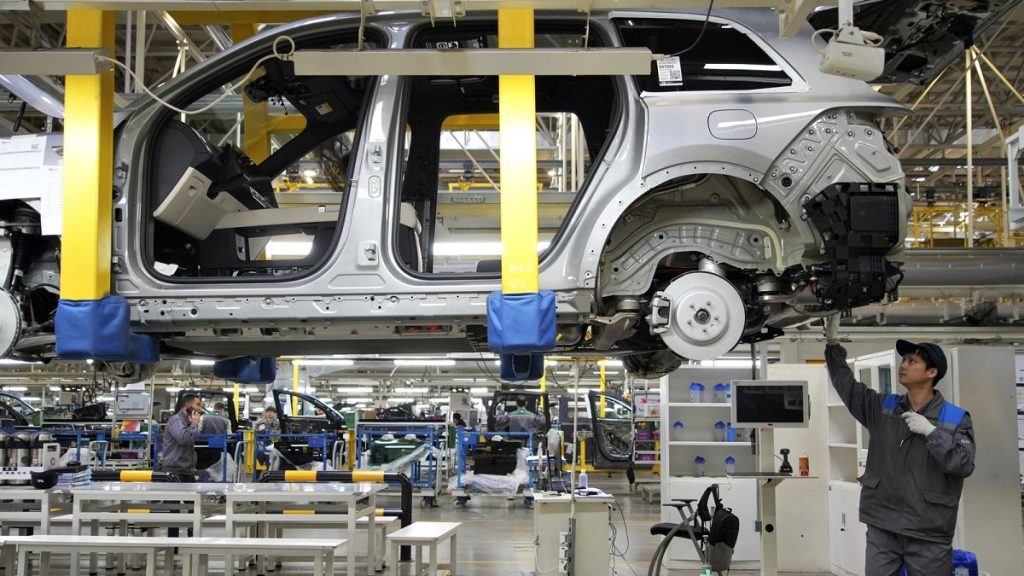Brussels is concerned about the increasing import of Chinese electric vehicles (EVs) potentially harming the competitiveness of the European market in this sector. China has threatened the European Commission with additional tariffs in response to an anti-subsidy investigation into Chinese-made EVs being sold at lower prices in the bloc. The investigation, initiated in September 2021, is nearing its first phase completion, and provisional duties may be announced soon. The Chinese government is urging the EU to stop the investigation, warning of possible retaliatory measures if the tariffs are imposed.
The Chinese Foreign Ministry has raised concerns about the investigation being protectionist, and threatens to take necessary measures to safeguard its rights and interests if the EU proceeds with the tariffs. The China Chamber of Commerce to the EU has warned that China may retaliate by raising tariffs on large-engine vehicles imported from Europe. This could impact European carmakers, especially those reliant on the Chinese market. Member states have expressed reservations about the Commission’s actions, with some highlighting the risks of engaging in a trade war. Germany and Hungary are among those expressing doubts, with differing perspectives on the potential impact of the investigation.
Despite political pressure from certain member states, the Commission maintains that the investigation is based on evidence collected on the ground and aims to level the playing field in the electric vehicle market. Chinese brands like BYD, Nio, and Xpeng have gained a significant market share in Europe, with estimates suggesting their market presence could reach 15% by 2025. The surge in EU imports of China-made EVs has raised concerns, with the Commission considering duties in the 15-30% range to address market distortions. The US administration’s recent decision to increase tariffs by 100% adds pressure on Brussels to take a stronger stance.
The EU is facing a dilemma as it navigates the investigation into Chinese electric vehicles, balancing concerns about market competitiveness and potential retaliatory measures from China. The EU member states have varied perspectives on the issue, with countries like Germany and Hungary expressing doubts while others highlight the risks of escalating tensions with China. The Commission emphasizes the importance of evidence-based decision-making and ensuring a level playing field in the electric vehicle market. Any potential duties imposed on Chinese EVs are expected to impact Chinese brands but may also lead to adjustments in pricing strategies.
The escalating tensions between China and the EU over the investigation into Chinese electric vehicles highlight the complexities of international trade relations. The threat of retaliatory measures from China and concerns raised by various EU member states underscore the challenges faced by the Commission in balancing economic interests and trade practices. The increasing market share of Chinese EV brands in Europe poses a significant challenge for European carmakers, prompting calls for protective measures to address market distortions. The outcome of the investigation and any subsequent tariffs will shape the future of the electric vehicle market in Europe and its relations with China.


